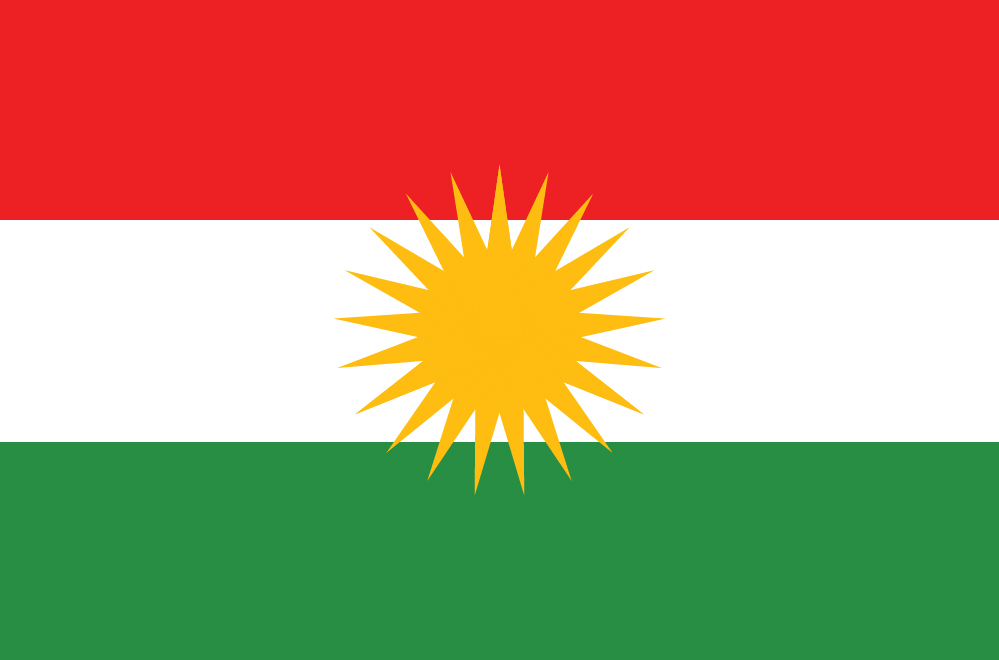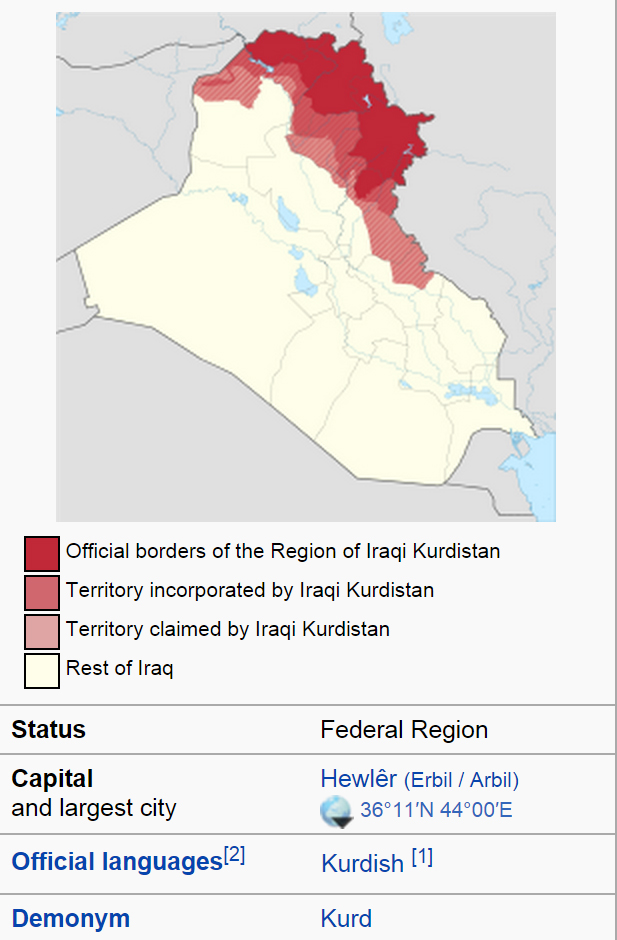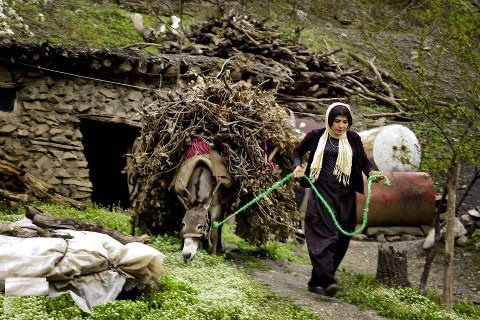Kurdistan Region (Kurdish: ههرێمی کوردستان / Herêmî Kurdistan) is an autonomous region in Northern Iraq. It borders the Kurdish regions of Iran to the east, Turkey to the north, and Syria to the west, along with the rest of Iraq to the south. The regional capital is Erbil, known in Kurdish as Hewlêr. The region is officially governed by the Kurdistan Regional Government (KRG).
Kurdistan is a parliamentary democracy with a regional assembly of 111 seats. The current president is Nechirvan Barzani, who was initially elected in 2019. The new Iraqi constitution defines Iraqi Kurdistan as a federal entity of Iraq, and establishes Kurdish and Arabic as Iraq's joint official languages. The four governorates of Duhok, Hawler, Silemani, and Halabja comprise around 40,000 square kilometers (15,000 sq. mi.) and have a population of 8.35 million (2013 estimate). In 2014, during the 2014 Iraq Crisis, Iraqi Kurdistan's forces also took over much of the disputed territories of Northern Iraq.
- With a population of 5.2 million and increasing, the region covers approximately 40,000 square kilometers - larger than the Netherlands and four times the area of Lebanon. This doesn't include areas of Kurdistan outside of KRG administration, such as Kirkuk.
The Region is geographically diverse, from hot and dry plains to cooler mountainous areas with natural springs and snowfall in the winter.
Foreign visitors are warmly welcomed. Among the growing number of visitors are international media and business people as well as those returning from the Kurdish Diaspora.
Not a single coalition soldier died in Kurdistan during the Iraq war, nor has a single foreigner been kidnapped in the areas administered by the KRG. With the cooperation of citizens, the Kurdistan Region’s security forces have kept the area safe and stable. Security responsibility was formally transferred from the Multinational Forces to the KRG in May 2007.
The Citadel in Erbil is considered the world's oldest continuously inhabited settlement. The next largest cities are Slemani and Duhok.
The KRG exercises executive power according to the Kurdistan Region’s laws as enacted by the democratically elected Kurdistan Parliament. The current government, led by Prime Minister Masrour Barzani, assumed office in the summer of 2019.
Iraq’s Constitution recognizes the KRG and the Kurdistan Parliament as the region’s formal institutions and the Peshmerga forces as the Region’s legitimate security force.
The current coalition government consists of several political parties that reflect the diversity of the Region’s population, which includes Chaldeans, Assyrians, Syriacs, Turkmen, Yazidis, Arabs and Kurds living together in harmony.
More than 65% of destroyed villages have been rebuilt since being razed during the Anfal campaign perpetrated by Saddam Hussein’s regime in the 1980s.
The Kurdish language is of Indo-European origin and is among the family of Iranian languages, such as Persian and Pashto, and is distinct from Arabic. The two main dialects are Sorani and Kurmanji.
The Kurdistan Region has 11 public universities and several licensed private universities. Some of them use English as the main language of teaching and examination, most notably the University of Kurdistan Hawler (UKH) and the American University of Iraq – Sulaimani (AUI-S).
A new, liberal foreign investment law was ratified in June 2006, providing incentives for foreign investors such as the possibility of owning land, up to ten-year tax holidays, and easy repatriation of profits.
To rapidly benefit from its oil and gas resources, the KRG has signed dozens of production sharing contracts with companies from 17 countries.
The Kurdistan Region has international airports in Erbil and Slemani, with direct flights to and from Europe and the Middle East. A new international airport is under construction in Duhok.









